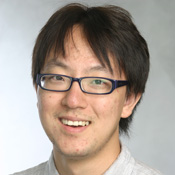Professor David Simchi-Levi of Engineering Systems at MIT, delivered the 11th Annual Meir Rosenblatt Memorial Lecture on Friday, Nov. 21 with a clear message on a change of direction in high impact operations management research. The lecture is sponsored by the Boeing Center for Technology, Information, and Manufacturing (BCTIM).
Guest Blog by: Panos Kouvelis and Guang Xiao
The title of his talk effectively encapsulates the message: “OM Research: From Problem Driven to Data Driven Research”. In this lecture, he shared with the audience his experience and perspectives on the opportunities and challenges of doing research in the field of Operations Management from a practical point of view, and outlined a vision for the future of research in the operations management field.
His talk consisted of two main parts:
- Paradigm 1: Problem Driven Research
- Paradigm 2: Data Driven Research
For the problem driven part, he argued that the OM researcher should have the ability not only to apply theory in solving practical problems, but also to develop new theory inspired by the real world practice. To illustrate the former point (application of theory for solving complex real world problems) David described what he referred to as his “Manhattan project,” in which the “traveling salesman” algorithm was used to solve the New York City school bus routine problem, and resulted in significant cost savings, i.e., reduction of over 30%-40% in annual costs.

Professor David Simchi-Levi of Engineering Systems at MIT.
For the latter one (generalizable theory from practical challenges and best practices), David used examples from his recently published work on process flexibility. The Pepsi Bottling Company consulted with him on solving practical operational challenges on how to balance resources to better match supply with demand. David and his students applied the concept of process flexibility (flexible resources are enabled to handle multiple operational tasks) and achieved significant benefits for the company.
Of course, flexible resources are also expensive undertakings, and the natural question that arises is to what degree the flexibility of a resource should be developed in order to obtain effective system performance meeting the demands placed upon it. The answer was, ‘not that much,’ and for a system appropriately designed to take advantage of its limited flexibility resources its performance quickly approaches the performance of the fully flexible system.
Seeing the power of process flexibility, they explored deeper and developed a theory explaining the intriguing rationale of why even little flexibility used appropriately can result in tremendous performance improvements.
Shifting his emphasis on the role of data driven research, which uses data not only to uncover symptoms of problems but delves deeper into understanding the nature of the “true” problem and then uses the same data to model and optimize the performance of the studied system, David used his work for the “Rue La La” online retailing business as an example for the approach.
When digging into the company’s large sales data, he and his students found that the retail pricing practices were highly influencing the consumer’s purchasing behavior. Consequently, they incorporated the dynamic pricing strategy and learned through experimentation lessons of induced consumer behavior from it to build “smart pricing algorithms” resulting in a more than 10% increase in revenue for the company.

Guang Xiao, Operations and Manufacturing Management PhD candidate
Data driven research is a new research direction and thinking approach for the operations and supply management area, which will also require researchers with our unique combination of skill sets from diverse but analytically driven areas, such as Economics, Statistics, Econometrics, Stochastic Processes, Learning Theory, and Dynamic Optimization. It is a fruitful research with ample opportunities for high impact theory and valuable practical applications.

Panos Kouvelis, Director of BCTIM and Emerson Distinguished Professor of Operations and Manufacturing Management
David’s talk pointed out a trend and research direction that perfectly fits the philosophy and capabilities of our operations and supply chain management Olin faculty and fellows at our BCTIM Research Center. BCTIM will strongly pursue and sponsor activities in this direction and it will offer ample opportunities for both faculty and students in data driven research for high impact real world applications.
Please click here to view Mr. Simchi-Levi’s presentation.





 The foundation promotes the ideals and aspirations of its founders and supporters beyond their lifetime by providing funds to organizations for projects that anticipate the future in the areas of the arts, computer science, education, finance, health care, medicine, and the social sciences, including research in any of these areas.
The foundation promotes the ideals and aspirations of its founders and supporters beyond their lifetime by providing funds to organizations for projects that anticipate the future in the areas of the arts, computer science, education, finance, health care, medicine, and the social sciences, including research in any of these areas.
 STEM degrees can also benefit students in a few key ways. Our students come away with a more technical specialization in a business area. STEM is also a hot topic for employers so many of our graduates may see increased interest on behalf of employers. Finally our international students have the potential to gain an additional authorized off campus work experience during their time in the US.
STEM degrees can also benefit students in a few key ways. Our students come away with a more technical specialization in a business area. STEM is also a hot topic for employers so many of our graduates may see increased interest on behalf of employers. Finally our international students have the potential to gain an additional authorized off campus work experience during their time in the US.



